
Bahamian-American actor, film director, and diplomat Sidney Poitier is widely considered one of the most important and influential figures in the history of Black cinema. He landed his first film role playing a high school student in Blackboard Jungle in 1955, kickstarting a barrier-breaking career. He went on to win numerous accolades, including a Grammy Award, two Golden Globes, and a British Academy Film Award. Poitier’s landmark achievement was being the first black actor to win the Oscar for Best Actor in a Leading Role, and in 2001 he received an Academy Honorary Award for lifetime achievement. Other honors he received include the AFI Life Achievement Award, a star on the Hollywood Walk of Fame, the Golden Globe Cecil B. DeMille Award, a BAFTA Fellowship, a Kennedy Center Honor, and the Presidential Medal of Freedom.
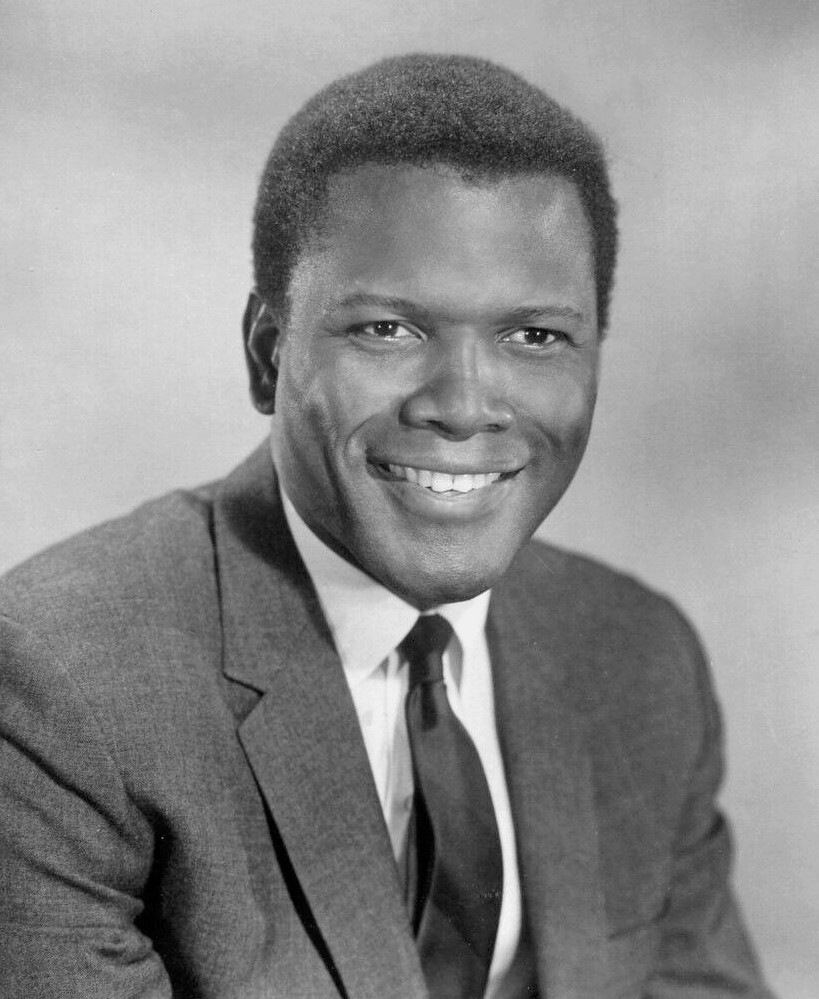
More important than his many decorations, however, was the legacy he left behind—one that inspired an entire generation of black actors that came after him. Part of that legacy came from his refusal to do certain roles. Speaking to Oprah on the topic, Poitier said, “I was the most successful black actor in the history of the country. I was not in control of the kinds of films I was offered, but I was totally in control of the kinds of films I would do. So I came to the mix with that power—the power to say, ‘No, I will not do that.’ I did that from the beginning.… [The] films I did were designed not just for blacks but for the mainstream. I was in concert with maybe a half-dozen filmmakers and they were all white. And they chose to make films that would make a statement to the mainstream audience about the awful nature of racism.”*
His choice to be selective of the roles he took—to purposefully avoid demeaning stereotypes—left a powerful impact on the film industry and on the black actors who came after him. Sadly, on January 6th, 2022, Sidney Poitier died in his Beverly Hills home at the age of 94. He is survived by his wife Joanna Shimkus and five daughters. While Poitier’s life work certainly can’t be summed up into a list of five films, we wanted to share some of his most popular movies with you. So, without further ado, here are five Sidney Poitier films that defied black stereotypes.
The Defiant Ones (1958)
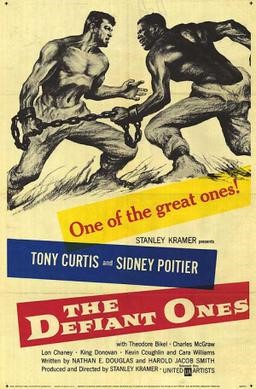
The Defiant Ones tells the story of two convicts escaping a work gang, John “Joker” Jackson (Tony Curtis) and Noah Cullen (Sidney Poitier). Forced to work together to attain their freedom due to the chains that bind them, the two must overcome their race-driven hatred for each other in order to elude their captors. The film was nominated for 21 different awards, including the Oscar for Best Actor in a Leading Role for both Tony Curtis and Sidney Poitier, making Poitier the first black actor to receive the nomination. While he lost the Oscar this time around, Poitier won the BAFTA award for Best Foreign Actor. The Defiant Ones also took home the Oscars for Best Writing, Story and Screenplay, and Best Cinematography, Black-and-White.
A Raisin in the Sun (1961)
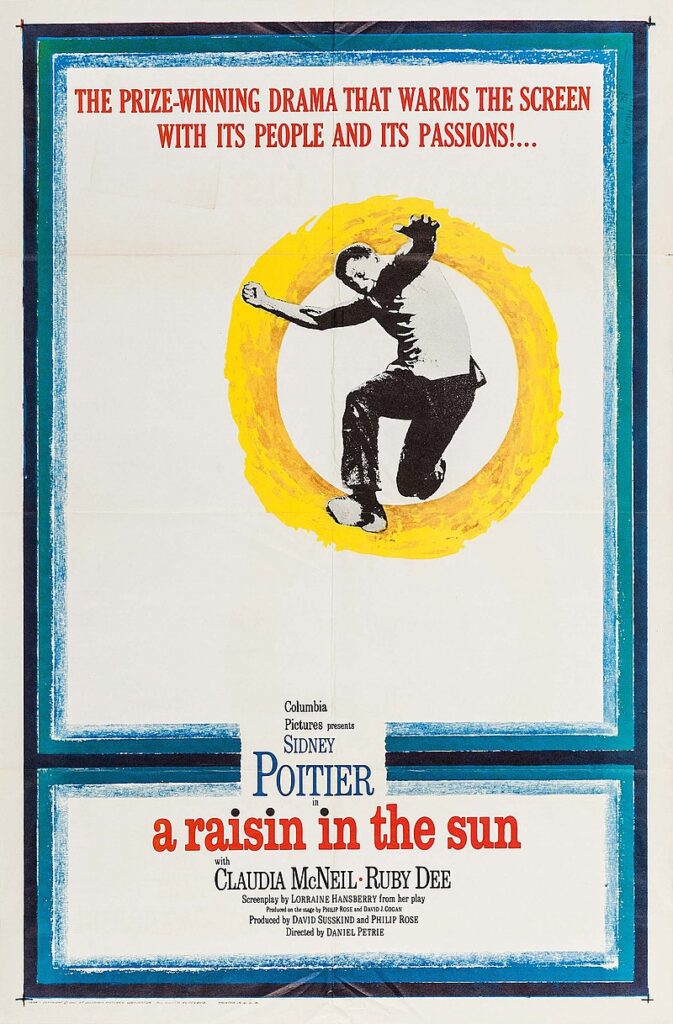
Based on the 1959 play by Lorraine Hansberry, A Raisin in the Sun follows the Youngers, a Black family living in poverty, as they struggled to decide what to do with a $10,000 life insurance check. Poitier was praised for his portrayal of Walter Lee Younger in the film and received the Golden Globe nomination for Best Actor for the role. In 2005, the United States National Film Registry, in association with the Library of Congress, selected the film for preservation due to its cultural and historical significance.
Lilies of the Field (1963)
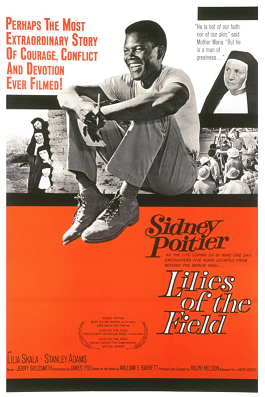
In Lilies of the Field, based off a book of the same name by William Edmund Barret, ex-G.I. Homer Smith (Sidney Poitier) “stumbles upon five German refugee nuns in Arizona and helps them build a chapel.”** The film was widely praised by critics and won numerous awards, including the Oscar for Best Actor in a Leading Role. Poitier similarly won the Golden Globe for best actor and was nominated for the BAFTA for Best Foreign Actor. In 2020, the film was also selected by the United States Film Registry for preservation at the Library of Congress.
To Sir, With Love (1967)
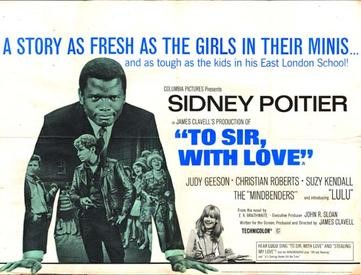
While waiting for an answer about an engineering job, immigrant Mark Thackeray (Sidney Poitier) takes a teaching position at North Quay Secondary School in London’s East End. He treats the rowdy students with his own brand of discipline, insisting they treat each other with respect. While not as appreciated by critics as well as some of his other films, To Sir, With Love is often considered a Poitier classic.
In the Heat of the Night (1967)
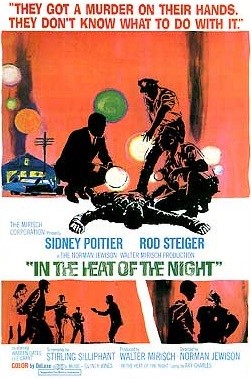
Philadelphia homicide detective Virgil Tibbs (Sidney Poitier) reluctantly finds himself working with racist police chief Gillespie in Sparta, Mississippi, to solve the murder of industrialist Philip Colbert. Tibbs and Gillespie soon find they have to work to overcome their prejudices in order to find the killer and bring him to justice. In the Heat of the Night was widely praised by critics and experienced general success. While Poitier himself received no awards for his role, he was nominated for a BAFTA and Golden Globe, and the film won five Academy Awards, including Best Picture.
*“Oprah Talks to Sidney Poitier.” O, The Oprah Magazine (October, 2000). 17 January 2022, https://go.iu.edu/4h0d
**Summary credit to the film’s IUCAT entry
Kathryn Edom is a composer and aspiring music librarian in her second semester of IU’s MLS (Library Sciences) program. She previously attended Sacramento State University and University of Oregon where she received her BM and MM (respectively) in music composition. On top of her courses, she currently juggles three different library jobs, and in her limited spare time, enjoys reading, writing music, playing Animal Crossing, and watching Oregon football.
Leave a Reply